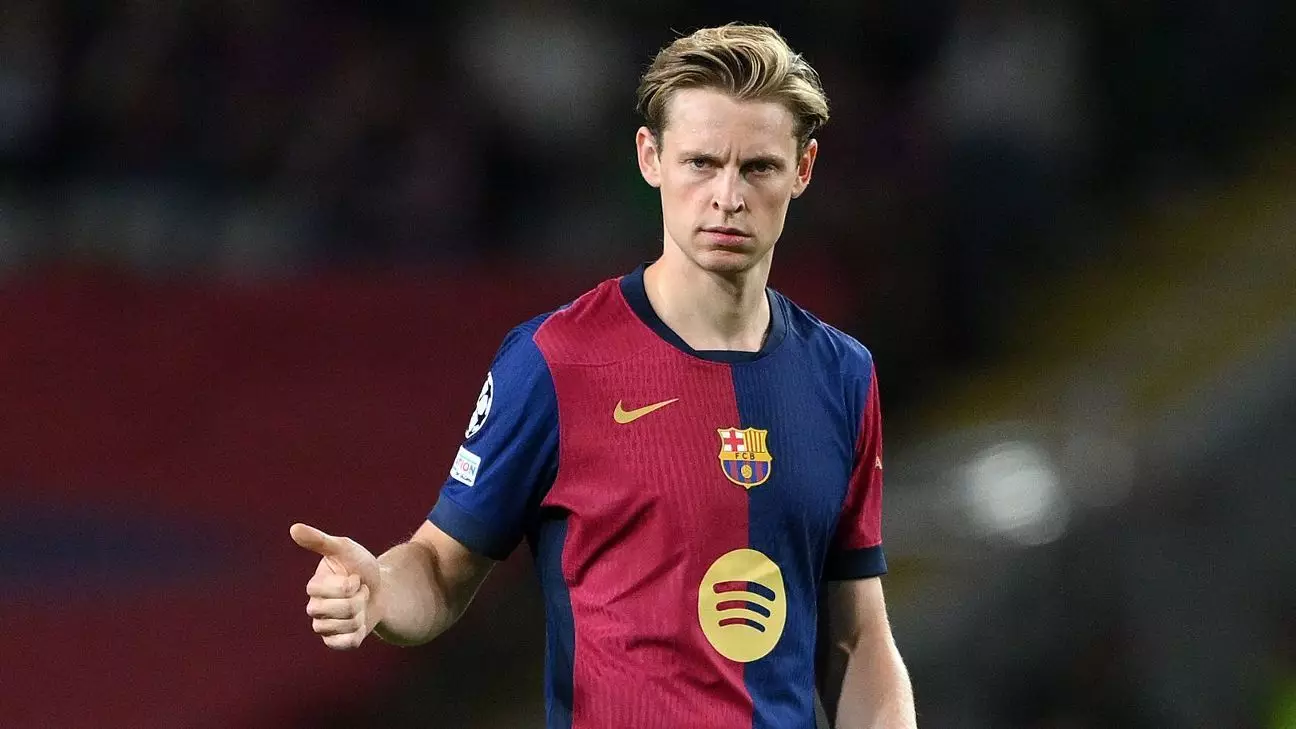Frenkie de Jong’s arrival at FC Barcelona in 2019 was met with high hopes and glowing expectations, both from fans and analysts alike. Heralded as one of the most talented midfielders of his generation, his move from Ajax was seen as a pivotal moment not just for his career, but for the club’s ambitions as well. However, as the Dutch international reflects on his time in Catalonia, he has expressed disappointment over the scarcity of trophies won during his tenure. Managing a mere three titles—a solitary LaLiga title, a Copa del Rey, and a Spanish Supercopa—De Jong’s predicament accentuates a broader narrative within professional sports: the dissonance between individual talent and team success.
Initially, players often envision their careers as a series of triumphant milestones. De Jong’s childhood dream of donning the Barcelona jersey added layers of expectation—both personal and public. Yet, as he candidly stated in an interview, the stark reality often diverges from the idyllic visions held by aspiring athletes. The sobering recognition that the trophy cabinet may not be as full as anticipated serves as a poignant reminder that stardom in football can come with its own set of challenges, including injuries and team dynamics.
In the landscape of professional football, injuries can derail the momentum of even the most promising careers. De Jong’s experiences with recurring ankle problems have significantly impacted his contributions to the team. The psychological toll of such physical setbacks, described by him as “mental trauma,” further complicates the narrative. This is a common theme where athletes find themselves grappling with the mental repercussions of being impaired, notwithstanding their talent. De Jong’s situation underscores the invisible battles that many athletes face behind their public personas.
His current contract, which runs until 2026, places him at a career crossroads where he must weigh his future endeavors against the backdrop of a club undergoing transformations. While Barcelona is undergoing a phase of reconstruction and realignment, the question looms: how will De Jong’s situation evolve? For a player who has previously shunned offers from clubs like Manchester United, debating a potential exit highlights the precarious nature of his position within the squad.
In the face of adversity, De Jong’s commitment to the sport remains unwavering. His declaration that staying with Barcelona hinges on his ability to contribute effectively is a testament to his character. Professional athletes often navigate the tension between loyalty to their clubs and the inherent need for personal growth and satisfaction. De Jong’s assertion that he wouldn’t hesitate to leave if he felt unworthy of contributing to the team’s success reveals an admirable standard of self-assessment. This perspective not only reflects humility but also an understanding of the responsibilities that come with wearing the club’s emblem.
The profound relationship between performance and self-worth is palpable in De Jong’s words. He acknowledges the importance of regaining his form and reassessing his situation post-injury—a process that requires both patience and resilience. Football is as much a mental game as it is physical, and the capacity to bounce back from adversity often differentiates the greats from their contemporaries.
As he navigates the complexities of recovery and competition for starting roles, De Jong’s future remains uncertain yet promising. With La Liga progressing and his position temporarily at risk due to a lack of playing time, the urgency for him to demonstrate his abilities intensifies. However, this pressure can also act as a catalyst for growth, pushing athletes like De Jong to reach new heights in their performance.
Ultimately, while the trophies may be fewer than expected, De Jong’s experience provides valuable insights into the multidimensional nature of a footballer’s career. As supporters and stakeholders look ahead, the hope is that De Jong can reclaim his stature on the pitch, contributing to Barcelona’s storied legacy while also fulfilling his personal aspirations. The journey continues, and within these trials lies the potential for redemption and success, both for the player and the club.

